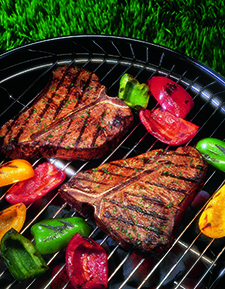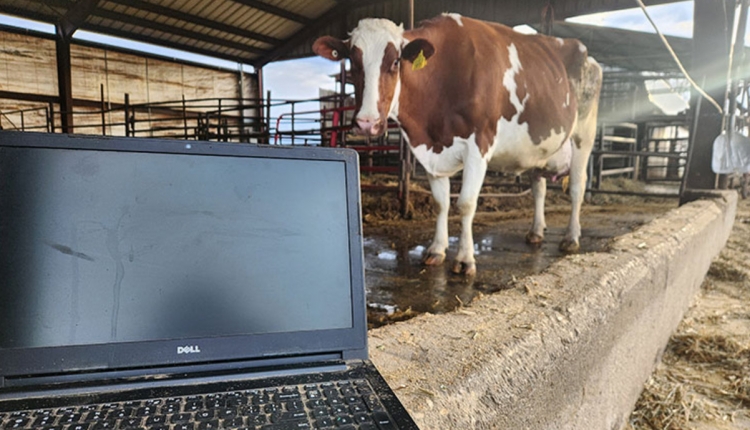 Beef for dinner, or any other meal, can be found with a variety of labels. How it was raised, housed and fed can differentiate how it is marketed.
Beef for dinner, or any other meal, can be found with a variety of labels. How it was raised, housed and fed can differentiate how it is marketed.Here is some background on the most commonly seen marketing labels for raising beef.
Grain-Finished: Cattle spend most of their early lives grazing on pasture and then spend four to six months in a feed yard. They are free to eat an optimal balanced diet of grasses, grains and other forages. The label will often read, "Beef: Raised with Care, Grain-Finished."
Grass-Finished: Beef labeled "Natural Grass-Fed" spent their entire lives grazing on pasture. However, research shows that it takes 226 more days for grass-finished cattle to reach market weight than grain-finished cattle. Grass-finished cattle also use more water to reach market weight as determined by a University of California-Davis study.
Naturally Raised: There is variability here. They can be finished on pasture or grain, but this beef was raised without antibiotics, received no additional hormones and was packaged without preservatives. This "Purely Natural Beef" must be certified by the USDA's Agricultural Marketing Service.
Certified Organic: Again, this label can be for grain- or pasture-finished cattle. However, the grass or grain (and any other feed ingredients) must have been certified 100 percent organic. The USDA-AMS also makes this designation and is seen with a green "USDA Organic" label.
While there are few ways to raise and feed beef cattle, the end result is the same . . . A protein-packed staple on your dinner plate. Which to chose it up to you, but keep in mind beef provides 10 essential nutrients.
Beef's 10 essential nutrients:
Iron – helps the body use oxygen
Choline – supports nervous system development
Protein – helps preserve and build muscle
Selenium – helps protect cells from damage
B6 and B12 – helps maintain brain function
Zinc – healthy immune system
Phosphorus – for bones and teeth
Niacin – supports energy production and metabolism
Riboflavin – helps convert food into fuel

The author is the online media manager and is responsible for the website, webinars and social media. A graduate of Modesto Junior College and Fresno State, she was raised on a California dairy and frequently blogs on youth programs and consumer issues.









